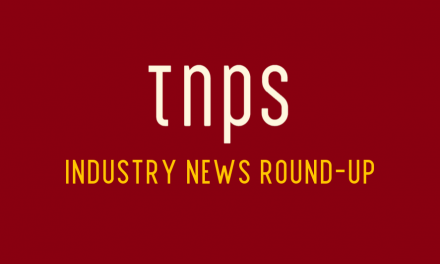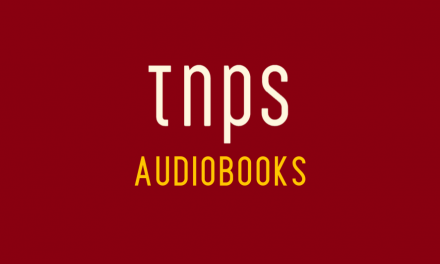When Jonas Tellander announced Storytel’s plan to moved from a fixed rate payout for publishers to a per-minute-consumed model there was understandable disquiet from publishers, many of whom believed the new model would see their revenue streams cut.
And of course some did. Under the old model a one-hour podcast would earn as much for the publisher as a ten-hour audiobook.
If not entirely satisfactory for the publisher of the latter, how much more unsatisfactory for Storytel. Ten one hour podcasts would mean ten pay-outs at the fixed rate, against one payout for the full-length audiobook.
That in turn encouraged publishers to lean towards shorter works which would bring higher revenue, which in turn hurt Storytel’s bottom line.
The new model levels the playing field somewhat, although there are still winners and losers, of course
That one hour podcast will now earn substantially less than a fully-consumed ten hour audiobook.
As the first payouts under the new model were made, several publishers reported dissatisfaction with the new time-based remuneration.
But that was to be expected at this stage. The losers were vocal, the winners quietly smug.
The big question is whether the winners outnumber the losers, and we’ll need feedback over a longer period of time to know that.
Meanwhile Storytel had been at war with its biggest publisher and rival, Bonnier, with Bonnier declining to put its new frontlist titles into Storytel.
Sweden’s subscription model faces its biggest challenge yet as Bonnier and Storytel go to war
As Sweden’s biggest publisher, fielding big-name titles, that might have been expected to hurt Storytel, but it seems Jonas Tellander has the Midas touch right now. Far from hurting Storytel, Storytel saw subscriber numbers rise as the Bonnier boycott made the headlines.
And to rub salt into the wound Tellander reported the Bonnier boycott had boosted Storytel’s bottom line.
Tellander told Svensk Bokhandel,
We have had more subscribers in April, while listening to Bonnier’s backlist with us has fallen sharply. We expect an increased gross margin because the consumption of Bonnier’s backlist directory has decreased significantly and is expected to continue to decrease as the conflict continues.
That’s partly because Bonnier had a preferential royalty rate compared to other publishers, which means not only is Storytel seeing more subscribers but it is paying less per unit.
And of course other publishers are seeing their titles fill the vacuum, not least because Storytel is not giving Bonnier’s backlist titles any visibility advantage.
Which begs the question whether Bonnier’s next step will be to simply cut its losses and pull its entire catalogue from Storytel.
But let’s meanwhile get back to the big story here, which is Tellander’s announcement with regard to the new VAT rates on digital books which impacts Sweden from July 1.
We’ve known for some time this VAT cut had been coming, leaving the question, what would Storytel do with the windfall? Pocket the cash, drop the price to consumers, or pass on the bonus to publishers?
Sweden’s digital tax falls from 25% to 6% in July. What will Storytel do with its VAT windfall?
It seems the latter option was selected. Boktugg has the details, although the exact numbers are clouded a little by news that Storytel will no longer be breaking out separate numbers for Sweden in its quarterly reports.
Head over to Boktugg (OP in Swedish) for the calculations, but the bottom line is an estimated SEK 100 million ($10.4 million) is on the table by maintaining the current price for consumers, and according to Tellander that will be shared with the publishers.
In Boktugg’s words,
Who would not refuse SEK 100 million extra per year? Suddenly, Storytel’s revenue share is also a very good argument because the publishers and ultimately the authors then get half of this money, or at least SEK 50 million in 2019.
Boktugg reports Storytel’s CTO Sofie Zettergren as saying,
The rate reduction is of course positive for Storytel. Our ambition is to keep the price of SEK 169, which means that our ARPU [average revenue per user] increases from SEK 135 to SEK 160. With our revenue share we can now share this increase in revenue with the publishers.
It is not not only in Sweden that Storytel can see a positive effect of a reduced VAT rate. Finland has decided to cut to 10 per cent, which comes into force on 1 July. Poland, Netherlands, Spain and Norway are expected toi follow suit (percent change to be announced) and also in Norway, although Boktugg notes Norway already has a lower rate for ebooks, just not audiobooks. Denmark looks to be the sore thumb in this good news roll-out, with a 25% VAT rate for printed books, so little room for any major consumer incentives to buy digital.
No news yet of how Bokus Play and Nextory will respond to the VAT change, but Bookbeat, owned by Bonnier, took the opportunity to have a stab at Jonas Tellander.
Bookbeat CEO Niclas Sandin said,
We conducted a comprehensive analysis of customer behavior in BookBeat last year and arrived at a new pricing of SEK 149 for one user and up to SEK 345 for a family. We still believe that it is a competitive level that favors new listeners and will not currently adjust the prices. Instead, we will use the VAT reduction to continue to pay a fixed, predictable and better compensation than our main competitor (adding) on average, even after Storytel’s decision, we will pay a much more competitive compensation to Sweden’s publishers and authors.




